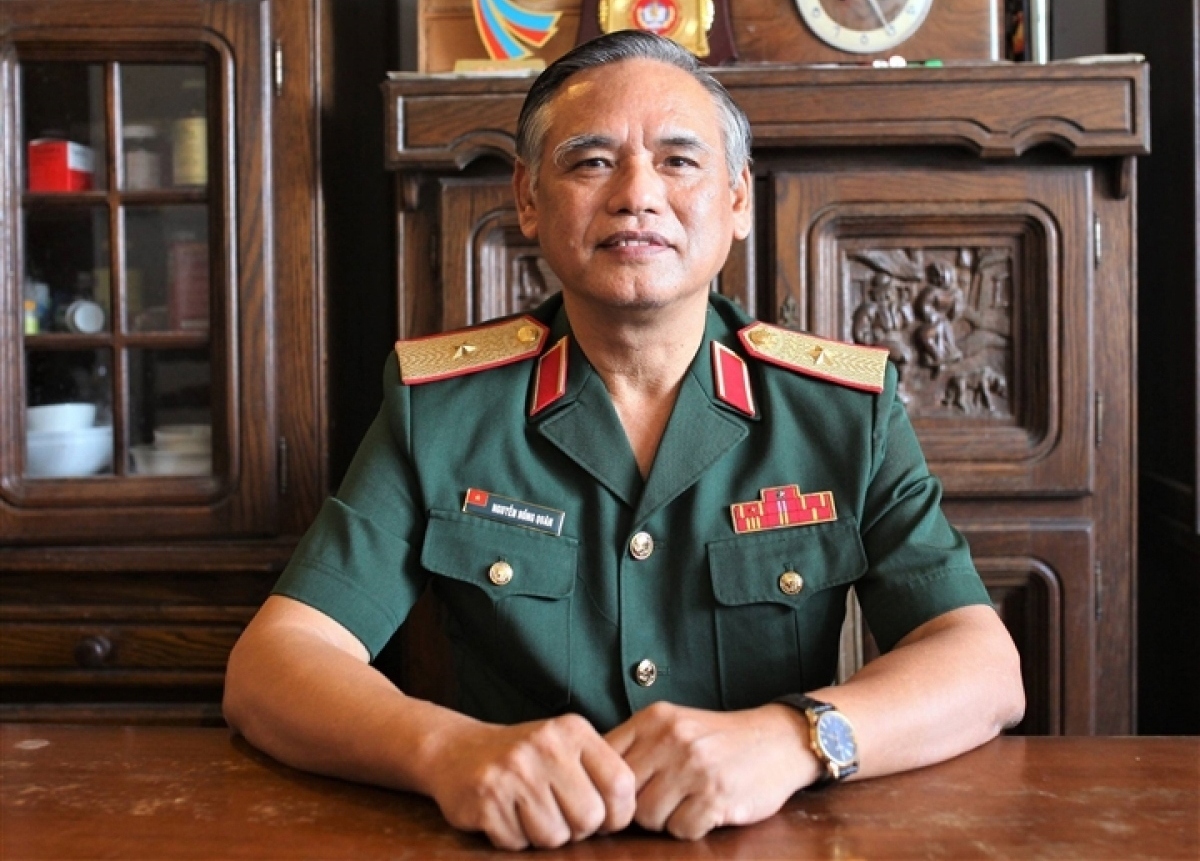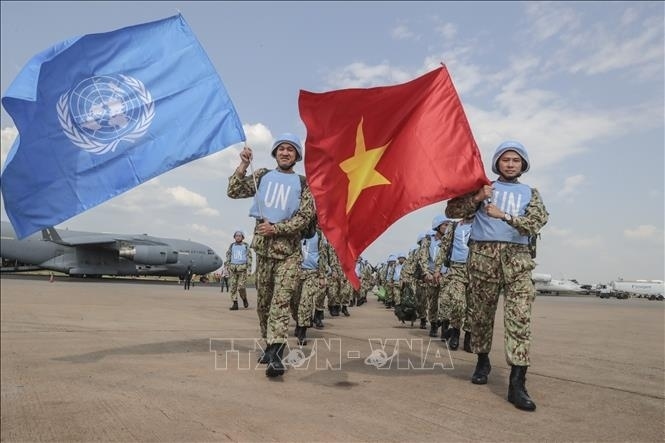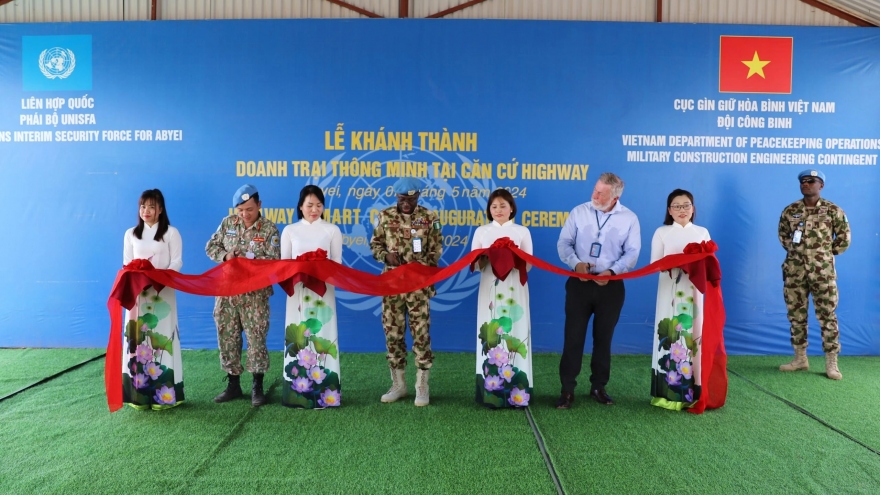Vietnam makes every effort to help global peacekeeping missions succeed
VOV.VN - The country does not send its armed forces to engage in peacekeeping operations to serve the intentions of other countries or non-state actors, and does not harm friendly or host nations, said Major General, Prof. Dr. Nguyen Hong Quan, former Deputy Director of the Institute for Defence Strategy in a recent interview granted to a VOV reporter on the occasion of the International Day of UN Peacekeepers.

VOV: The UN peacekeeping force was set up very early, in 1948. It took more than 60 years for Vietnam to begin sending its first officers to take part in UN peacekeeping missions. Why did the country join so late? Is it due to any specific mechanism or barrier?
Hong Quan: It was not until 1977 that Vietnam joined the UN. After that, we had to face wars to protect the Fatherland on the Northern and Southwest borders, followed by normalising relations with major countries.
The first time Vietnam participated was in May, 1997, long after it was invited by the United Nations. Thus, after 49 years, not 60 years, the nation joined the organisation. At that time, the Standing Committee of the Secretariat agreed to accept the invitation of the UN Secretary General of the UN and the invitation of Algeria, assigning the Ministry of National Defence and the Ministry of Foreign Affairs to send five officers and officials to partake as observers of the UN in Algeria.
More than a decade later, in 2014, Vietnam sent Level 2 Field Hospital No. 1 to join the UN peacekeeping mission. After preparing the apparatus, mechanisms, policies, personnel, and enlisting international support, the country has increasingly participated more deeply in the organisation.
To date, the nation has dispatched dozens of observers, five field hospitals and two sapper teams to participate in UN peacekeeping operations, with a force of over 500 officers, military observers, sappers, and police.
Vietnam only sends soldiers for UN peacekeeping work without sending combat forces in accordance with the nature of the UN peacekeeping forces which is impartial, unbiased, and does not use force, with the exception of cases when self-defence is necessary. Indeed, its participation comes at the request of the UN Secretary General and the invitation of the host country.
VOV: Implementing the UN Security Council’s Resolution 1325 on women, peace, security, and development, Vietnam has also sent female officers to join this force. In your opinion, what does this mean?

Hong Quan: Since its inception this force was staffed by male soldiers, then expanded to include police and civilian components. In recent decades, female soldiers around the world have participated, even in heavy tasks that had previously only suitable for men.
The nation sending female officers to join this force is an effort to promote gender equality, in the direction of enhancing women's empowerment, offering more opportunities for women to experience, strive, and contribute to a sustainable, secure, and safe future in the world.
This also shows that the country realizes its commitment that military women and police will participate more in UN peacekeeping operations moving forward.
VOV: Article 23, Clause 1 of the UN Charter stipulates that when electing the UN General Assembly, it will take into account the contributions made by members to the maintenance of peace and international security. Do you think that the contributions made by Vietnamese peacekeeping forces have helped the country be elected as a non-permanent member of the UN Security Council and twice elected to the UN Human Rights Council?
Hong Quan: The country has twice held the position of non-permanent member of the UN Security Council, with the first term being from 2007 to 2008 and the next term being from 2020 to 2021. The nation was also elected twice to the UN Human Rights Council for the 2014 to 2016 term and the current 2023 to 2025 term.
Thus, for the first time serving as a non-permanent member of the UN Security Council, as well as on the UN Human Rights Council, Vietnam has not participated much in these activities.
The criterion for selecting candidates for election by the UN General Assembly as non-permanent members of the UN Security Council or the UN Human Rights Council is to represent a geographical area.
Countries and regional organisations trust Vietnam as it has a strong voice. Regional and international friends believe that the nation will be stronger as a member of the UN Security Council and the UN Human rights when dealing with key issues of the UN, as well as of the wider international community.
These issues include implementing the 2030 Agenda for sustainable development; climate change response; migration; and protecting and promoting the rights of women, children, and people with disabilities; especially in humanitarian crises or armed conflicts worldwide.
VOV: Why does Vietnam only participate in peacekeeping operations that have been agreed by the conflicting parties to invite the UN to carry out?
Hong Quan: This is the general criterion of the UN to ensure objectivity, impartiality, and not taking advantage of UN peacekeeping forces to favour one side or the other, and either one country or the other in the conflict.
Each UN peacekeeping mission must be unanimously approved by a Resolution by the UN Security Council that clearly states its mission, duration of operation, scope of operation, operating budget, and is put under review every six months to see whether to terminate or prolong operations.
The extension is decided by the UN Security Council. Indeed, the nation only participates in peacekeeping missions established by the UN and is invited to contribute troops to ensure that these forces are impartial, unbiased, and avoid conflicts or disagreements with the host country.
VOV: When Vietnam sent forces to join the UN peacekeeping force, there were also many suggestions and proposals for the country to participate in searching and capturing war criminals to hand them over to the International Criminal Court (ICC), but we did not agree. In your opinion, why don't we become involved in this activity?
Hong Quan: The International Criminal Court is a permanent international court established to investigate, prosecute, and try individuals accused of committing the most serious crimes concerned by the international community, specifically genocide, crimes against humanity, and war crimes.
However, since its establishment, the ICC has faced criticism from many sides and has been unable to attract the participation of major powers, such as China and Russia.
Many African governments complain that prosecutions by the ICC have targeted the continent. Recent US administrations have all been tough on the ICC, although President Joe Biden's administration has adopted a more conciliatory approach, but tensions still remain.
To date, there are only 124 countries participating in the Statute of the International Criminal Court, referred to as the Rome Statute. About 40 countries have not signed this Regulation, such as Ethiopia, India, Indonesia, Iraq, North Korea, Saudi Arabia, and Turkey.
Thus, not all members of the UN General Assembly are members of the ICC, therefore the representation is not as high as the UN General Assembly.
Vietnam participates in peacekeeping forces without sending forces to serve the intentions of anyone or any other country, nor does it risk harming friendly or host countries. The nation does not get involved in the search and capture of "war criminals" to hand over to the ICC. In other words, we don't "buy ropes to tie ourselves up".
VOV: Thank you very much.




